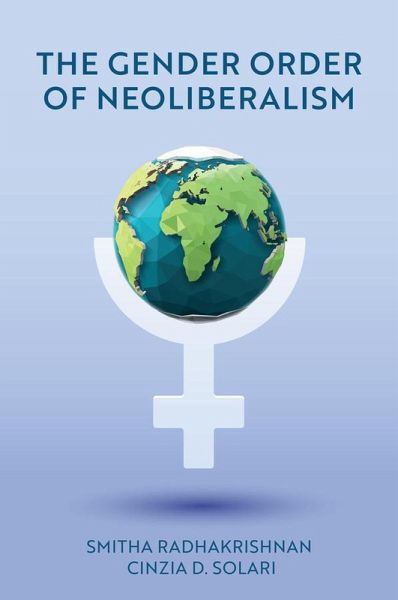
The Gender Order of Neoliberalism (eBook, ePUB)
Versandkostenfrei!
Sofort per Download lieferbar
18,99 €
inkl. MwSt.
Weitere Ausgaben:

PAYBACK Punkte
0 °P sammeln!
What do mompreneurs, angry working-class men, and migrant domestic workers all have in common? They are all gendered subjects responding to the economic, political, and cultural realities of neoliberalism's global gender order. In this ambitious book, Radhakrishnan and Solari map the varied gendered pathways of a global hegemonic regime. Focusing on the US, the former Soviet Union, and South and Southeast Asia, they argue that the interconnected histories of imperialism, socialism, and postcolonialism have converged in a new way since the fall of the Soviet Union, transforming the post-war int...
What do mompreneurs, angry working-class men, and migrant domestic workers all have in common? They are all gendered subjects responding to the economic, political, and cultural realities of neoliberalism's global gender order. In this ambitious book, Radhakrishnan and Solari map the varied gendered pathways of a global hegemonic regime. Focusing on the US, the former Soviet Union, and South and Southeast Asia, they argue that the interconnected histories of imperialism, socialism, and postcolonialism have converged in a new way since the fall of the Soviet Union, transforming the post-war international order that preceded it. Today, the ideal of the empowered woman - a striving, entrepreneurial subject who overcomes adversity and has many "choices" - symbolizes modernity for diverse countries competing for status in the global hierarchy. This ideal bridges the painful gap between aspiration and lived reality, but also spurs widespread discontent. Blending social theory, rich empirical evidence, and a multi-sited understanding of neoliberalism, this book invites all of us to question taken-for-granted knowledge about gender and capitalism, and to look to grassroots international movements of the past to chart the path to a fairer future.
Dieser Download kann aus rechtlichen Gründen nur mit Rechnungsadresse in D ausgeliefert werden.













